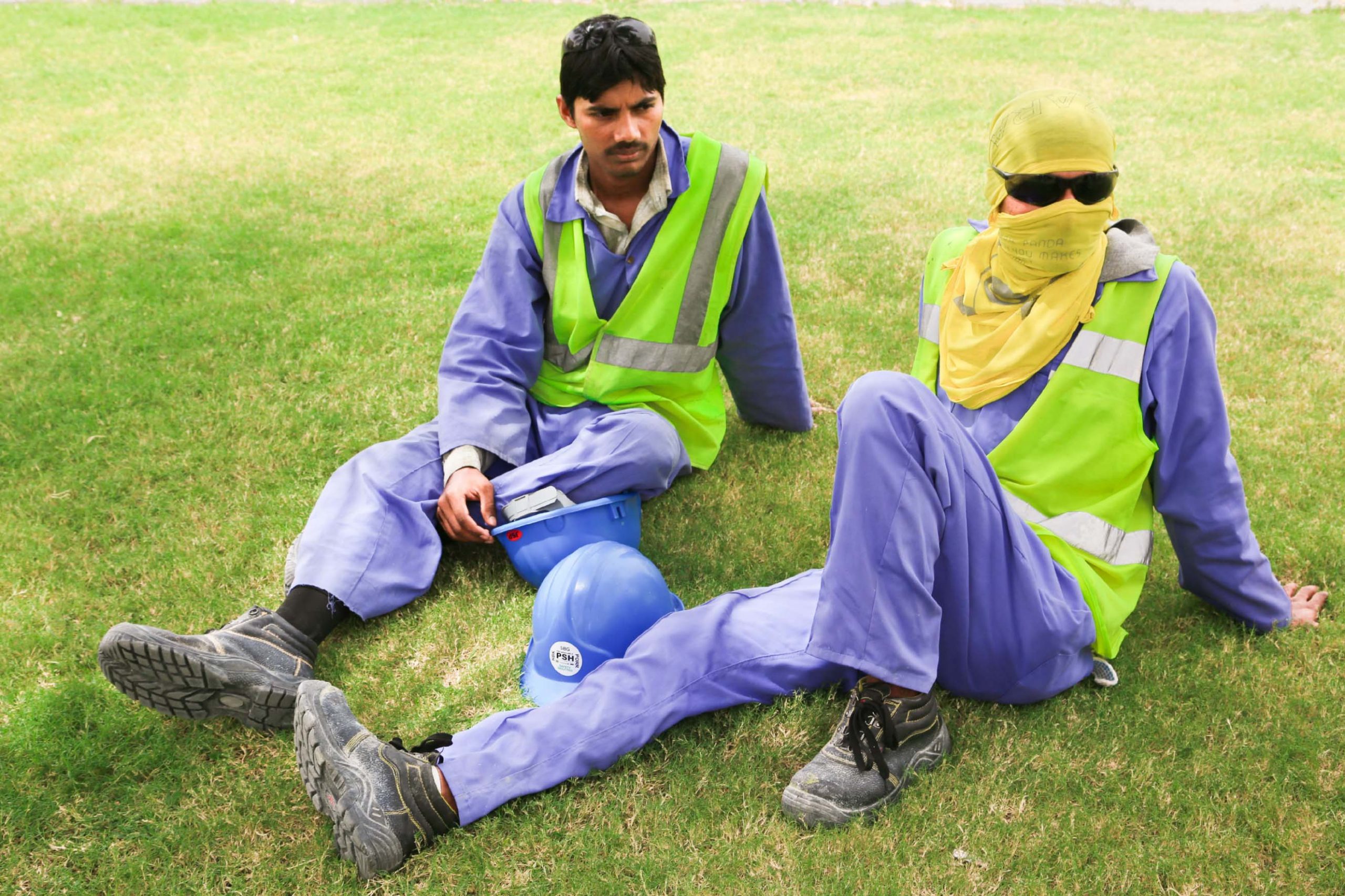
The trading of illegal workers’ visas in Qatar is at the heart of the country’s problem with human trafficking, a senior Ministry of Interior (MOI) official has said.
Brig. Nasser Mohammed Al Sayed, Director of the MOI’s Search and Follow Up Department, was speaking at a tw0-day consultative meeting in Doha this week about ways to combat human rights violations at home.
The meet was organized by the Qatar Foundation for Social Protection and Rehabilitation (QFSPR) and the United Nations Human Rights Training and Documentation Center for South West Asia and the Arab region.
It aimed to raise awareness of trafficking issues, encourage greater collaboration between authorities in Qatar and regionally and to set out guidelines for reform.
Definition
Foreigners in Qatar are required to hold visas to work in the country. Each year, hundreds, if not thousands, of expats get caught in a grey system, where they essentially purchase permission to work in the country, but find out only upon reaching Doha that the visa they bought had no real job attached to it.
They then become trapped in the country because they cannot afford to return home, or because a recruitment agency is holding on to their passport.
Others may have signed on to do a particular job, but their visa is classified under a totally different occupation, a practice that is against Qatar law.
Though human rights groups have documented dozens of such cases in Qatar, an official at the Public Prosecution’s office said that the country did not see any human trafficking cases in 2013.
Gulf Times reports Ibrahim Abdulla al-Qubaisi, Prime Solicitor-General, as saying:
“Based on the legal definition of human trafficking crimes, no such offences were recorded in Qatar in 2013.
Crimes such as visa trade could be considered as fraud, deception and greed rather than human trafficking. The crime usually happens outside the borders of Qatar, where the victim pays money for people to get them into the country. Our local legislations apply only to the country.”
The SFD’s Al Sayed added that no Qataris have been convicted of illegal visa trading, saying the blame usually lies with a company’s expat partner.
GCC database
According to the Gulf Times, Al Sayed also called for a region-wide integrated database to be established. This would help authorities share information and ensure that those convicted of illegal visa trading in one Gulf country are banned from entering all other GCC states.
Last year, a total of 51 firms were prosecuted for trading in illegal visas, while 43 jail sentences were handed down in fines – adding up to millions of riyals in payments for companies involved in the practice, local media reports quote Al Sayed as saying at the event.
Meanwhile, the problem of human trafficking in Qatar appears to be growing.
Throughout 2013, the MOI’s Search and Follow-Up department handled 1,046 complaints of human rights abuses by sponsors against their workers.
However, in just the first four months of this year (Jan. 1 to April 29), it dealt with 877 such complaints.
‘Corrupt’ recruitment agencies
Semi- and unskilled worker are often lured to Qatar and other Gulf countries under false visas, for which many have put themselves in enormous debt in order to pay recruitment fees of up to $5,000 a time.

A Qatar Foundation report published last month highlighted fundamental problems facing the worker recruitment process.
The Migrant Labor Recruitment to Qatar study called for an overhaul of the system of recruitment of blue-collar workers to Qatar, which it said was riddled with corruption, and marred by bribery and deceit.
While not denying that problems exist inside Qatar, the report focused on recruitment agencies based in the five main labor sending countries of Philippines, India, Sri Lanka, Nepal and Bangladesh.
The broken recruitment system rife in many agencies gives rise to human rights violations and exploits vulnerable workers.
Anti-trafficking law
Qatar’s Law No. 15 of 2011 outlaws human trafficking. If convicted, perpetrators can face up to 15 years in jail and fines of up to QR300,000 for the trafficking of women and children.
However, international human rights organizations and the media have roundly criticized Qatar for not doing enough to protect the rights of its majority immigrant population, particularly low-income workers.
The consultative meeting, which was attended by MOI officials, experts from the Public Prosecution and social workers from QFSPR, highlighted 11 recommendations for reform of the system in Qatar to tackle the problems.
Proposals included:
- Encouraging more integrated partnerships between the MOI’s Search and Follow Up Department, the QFSPR, the Public Prosecution and the Supreme Judicial Council;
- Developing regional and international alliances with relevant organizations; and
- Creating a national strategy for Qatar, in line with existing Arab and global strategies for combating human trafficking.
Thoughts?







